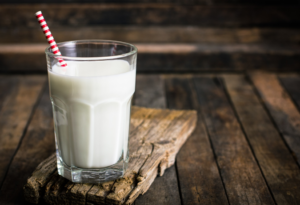
Making the correct dietary choices for your dental health isn’t always easy, and if you have kids, you have even more to be conscious about! That said, you’ve probably heard that milk and other dairy products are important for your overall health since they’re a great source of calcium. But when it comes to milk, there are various kinds – and it might not be easy to determine which ones are suitable for your child’s teeth. Here’s a closer look at a few of the most popular types of milk these days and how they can impact dental health.
Dairy: An Effective Means of Fighting Tooth Decay
Dairy products like milk, cheese, yogurt and others provide numerous benefits for your child’s oral health. They contain casein proteins, which form a protective film over the surface of the teeth and shield enamel from decay. They’re rich in calcium and phosphorus, which can repair minor tooth damage. They’re also mostly pH-neutral, in addition to being saliva-stimulants. Not to mention, most of them are quite delicious, and kids love them!
How Different Types of Milk Affect Dental Health
However, not every type of milk is necessarily beneficial for dental health, and the extent of these benefits also varies. Here’s a closer look at how a few of the most popular types of milk can impact the teeth and gums:
- Cow’s milk – Cow’s milk is packed with two of the most important ingredients that our teeth and bones need: calcium and vitamin D. This makes it excellent for teeth since this powerful duo can help to replenish tooth enamel.
- Soy milk – Soy milk contains calcium and vitamin D too, but in significantly lower amounts. Research also shows that soy milk leads to higher amounts of bacteria in the mouth, compared to cow’s milk.
- Almond milk – This is one of the go-to choices for those who are lactose-intolerant. Calcium typically must be added to it, but since it’s low in sugar (or even unsweetened), it carries a lower risk of tooth decay.
- Chocolate milk – Although it’s often made using cow’s milk, the high amounts of added sugar in chocolate milk don’t offset the calcium and vitamin D it contains.
Don’t Forget the Oral Care Basics
Milk is a fantastic way to enhance one’s dental health, but it’s not a substitute for regular oral care.
- Ensure that your child brushes for two minutes, twice daily using a soft-bristled toothbrush coupled with fluoride toothpaste.
- They should also floss daily and supplement by rinsing with an antibacterial mouthwash.
- Needless to say, bring them to their dentist semiannually for routine preventive care.
- Outside of milk, ensure that your child also drinks plenty of water. It’s another fantastic beverage for oral health since it doesn’t include any added sugars or acids; plus, local sources of tap water are often fluoridated.
Researchers and dental professionals agree that milk offers incredible benefits for dental health – especially compared to all the popular sodas, juices, and sports and energy drinks out there. That said, don’t hesitate to stock up your fridge with milk; you and your kids’ smiles will benefit from drinking plenty of it!
About the Practice
Here at Kids’ Smiles on Lincoln, we’ve proudly provided families in Worcester with top-of-the-line pediatric dental care for several years, and we’d be more than happy to work with you and your loved ones toward a lifetime of happy and healthy smiling! If you have any questions about the blog or you’d like to get in touch with our team to set up an appointment, you can visit us online or call us today for further information or assistance. Telephone: (508) 290-0090.
